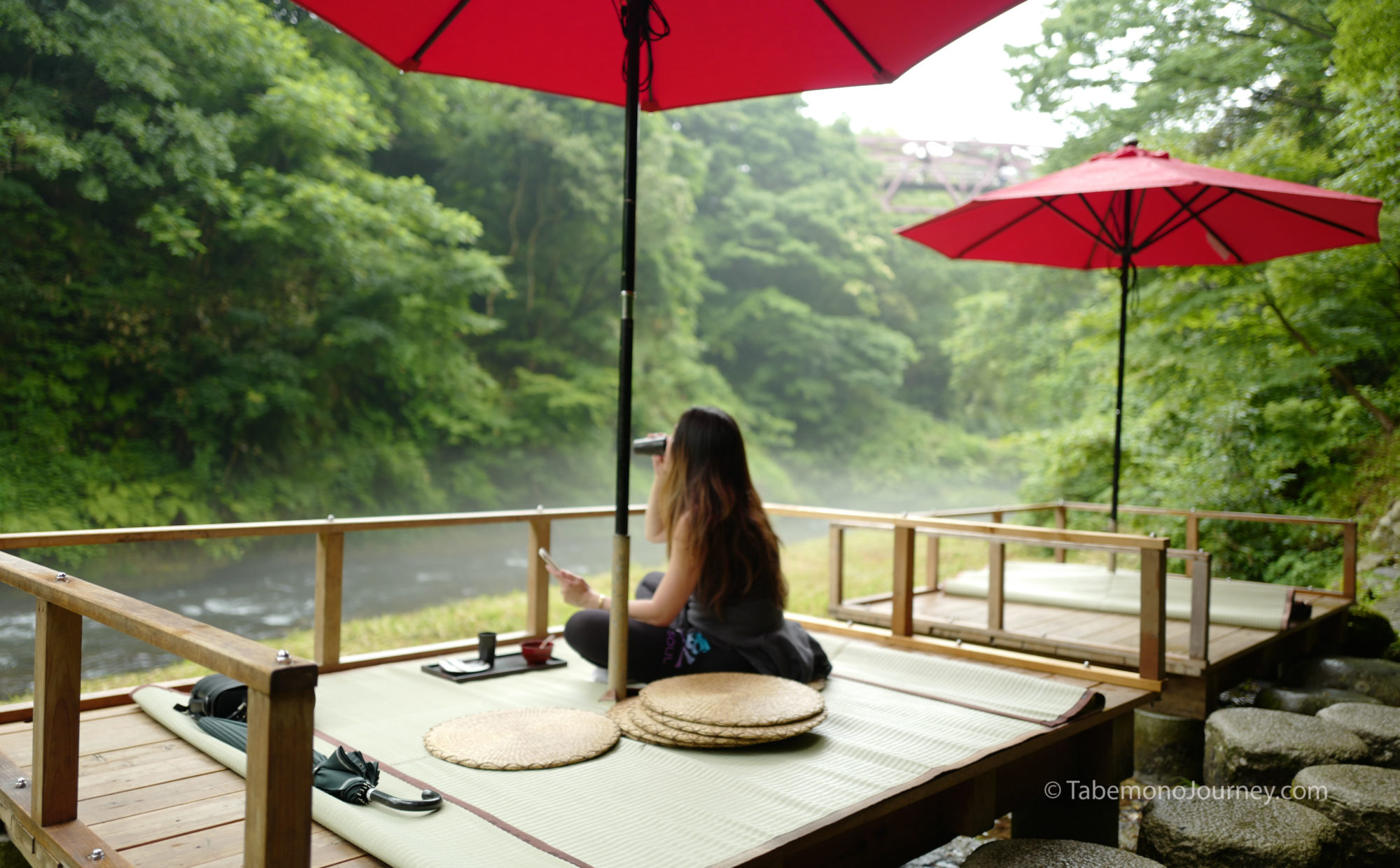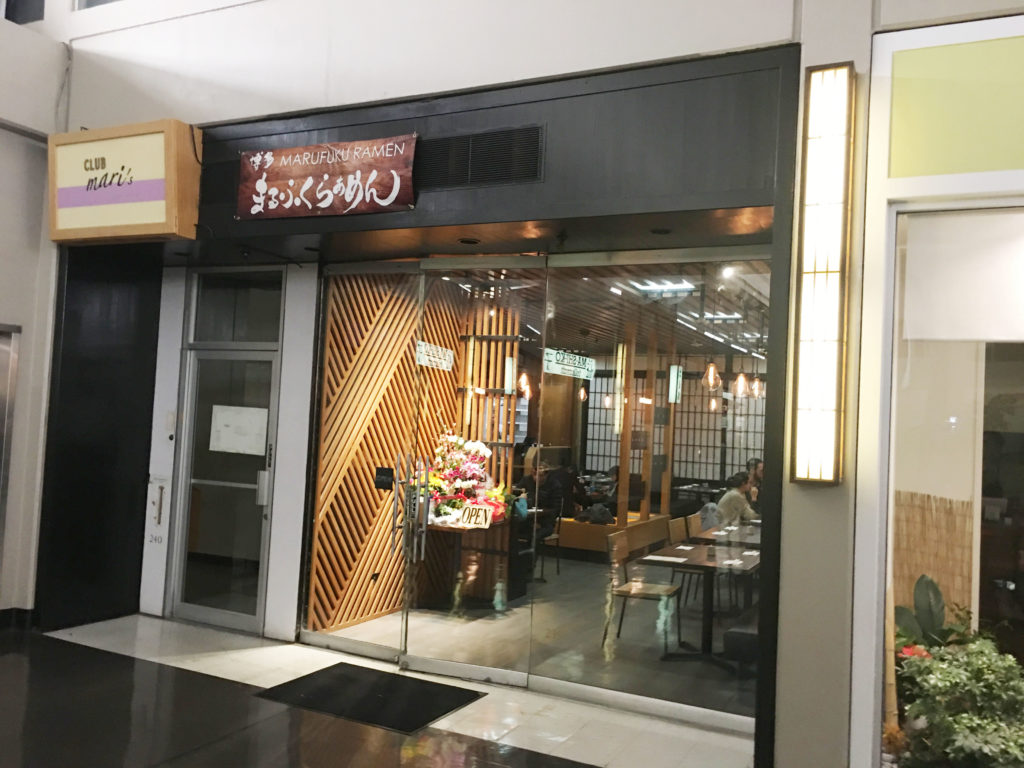February 21, 2017
After the amazing Japanese ramen imports of Mensho, Hinodeya, and Nojo Ramen in 2016, the bar is raised in the crowded San Francisco ramen scene. You would question whether San Francisco even needs another ramen shop as Ippudo is coming later in the year to Yerba Buena Ln in Downtown, San Francisco. This was why I was surprised to find that Marufuku Ramen quietly took over what use to be Sapporo-ya Ramen in Japantown of San Francisco. Japantown already has its fair share of ramen places, with many being sub-par to mediocre like the former Sapporo-ya Ramen. Thank goodness for the formerly mentioned Hinodeya, and now I can add Marufuku to the list of excellent ramen destinations in Japantown and overall in San Francisco.
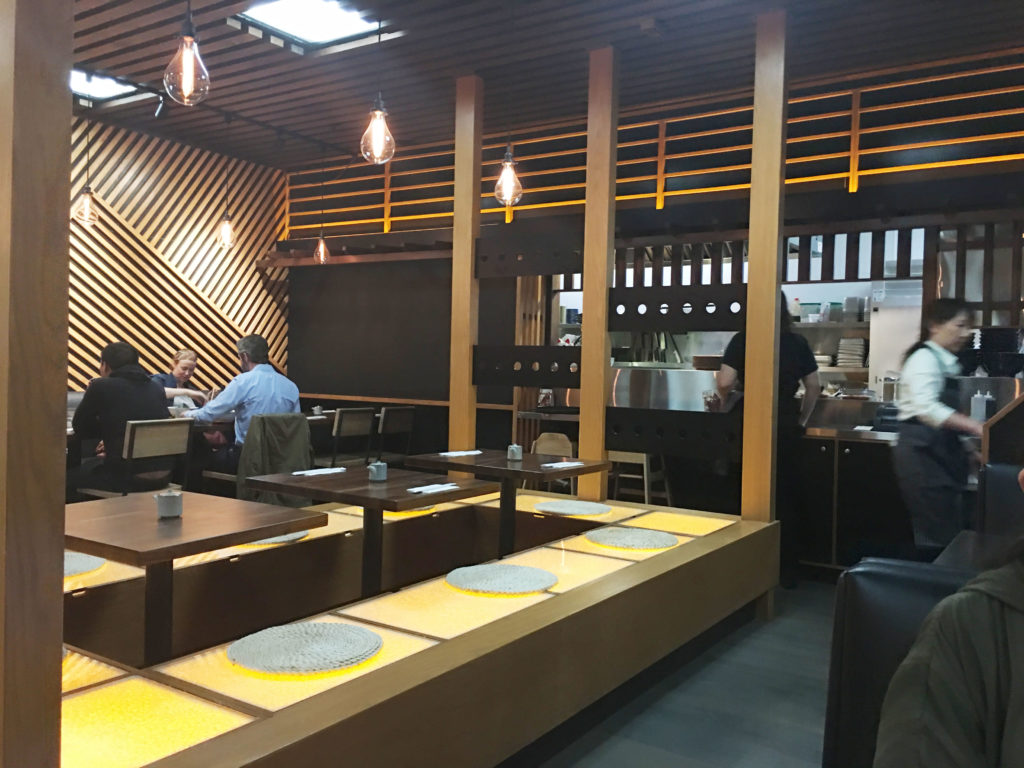 The decor inside is very Japanese, with heavy wood ascents throughout the restaurant. The focal point of the dining area are three tables surrounded by a tatami style rectangular bench, that provides a tasteful and zen-like ambiance to the restaurant.
The decor inside is very Japanese, with heavy wood ascents throughout the restaurant. The focal point of the dining area are three tables surrounded by a tatami style rectangular bench, that provides a tasteful and zen-like ambiance to the restaurant.
As we waited to get seated, my wife picked up their business card and we noted that they proudly mentioned that their ramen is characterized by “pork bone soup made over 20 hours, with ultra-thin noodle with low water content, char-shu made from special selected pork.” It also mentioned that “EVERYTHING” was hand-made. In talking to the head waitress, she mentioned that the owner who is of Japanese descent has 10 other restaurants like Shabu Shabu and Udon all in the United States, but none in Japan. She also shared that the head chef Taisho previously worked in Ippudo in Japan and is from Hakata, Japan.
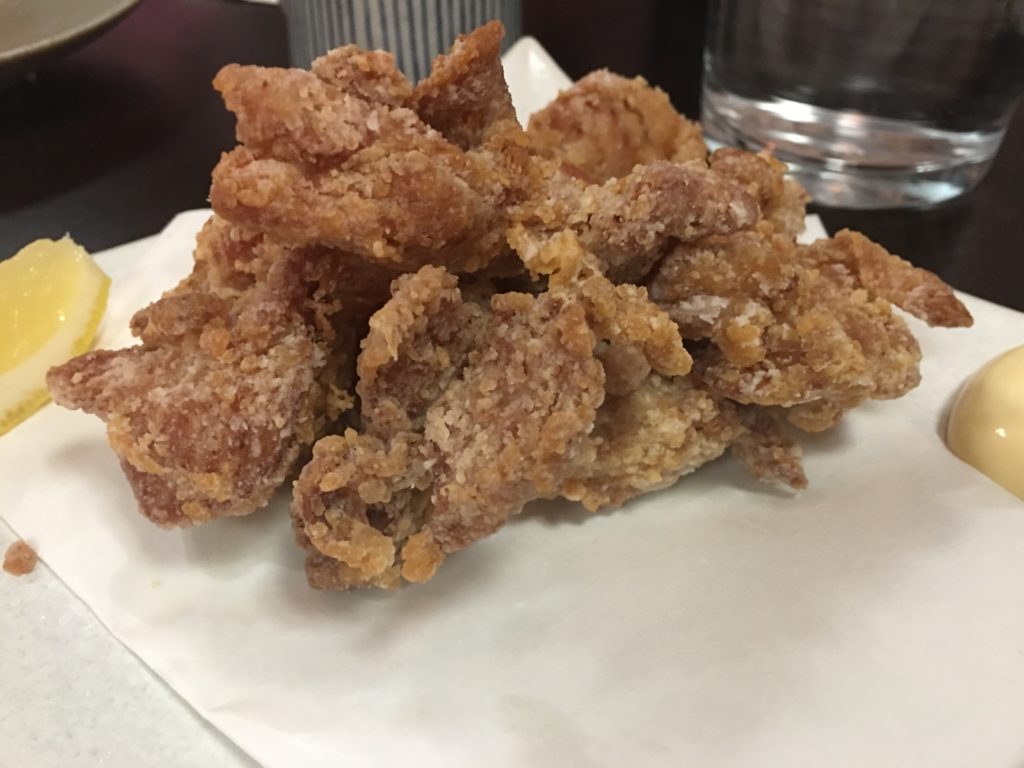 We ordered a chicken kara-age to start. Perhaps they just recently opened, but it was inconsistent and not too crispy. Made me a little worried about the ramen to come. We ordered both the Hakata Ramen Deluxe and the Tori Paitan that was on their menu.
We ordered a chicken kara-age to start. Perhaps they just recently opened, but it was inconsistent and not too crispy. Made me a little worried about the ramen to come. We ordered both the Hakata Ramen Deluxe and the Tori Paitan that was on their menu.
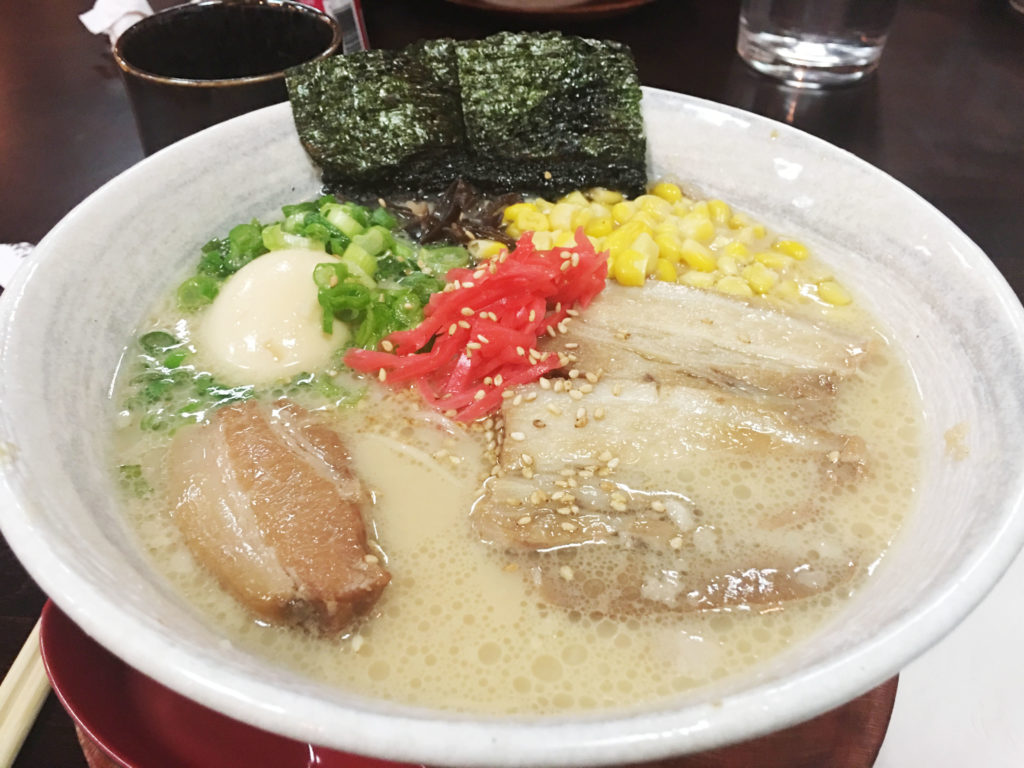 When the ramen arrived, I am happy to say that their Hakata style tonkotsu is very authentic. I have not been to Hakata in Kyushu, Japan, but have been to one of the Ippudo branches in the Ginza area of Tokyo. The broth here reminds me of Ippudo’s broth as it is rich and very complex.
When the ramen arrived, I am happy to say that their Hakata style tonkotsu is very authentic. I have not been to Hakata in Kyushu, Japan, but have been to one of the Ippudo branches in the Ginza area of Tokyo. The broth here reminds me of Ippudo’s broth as it is rich and very complex.
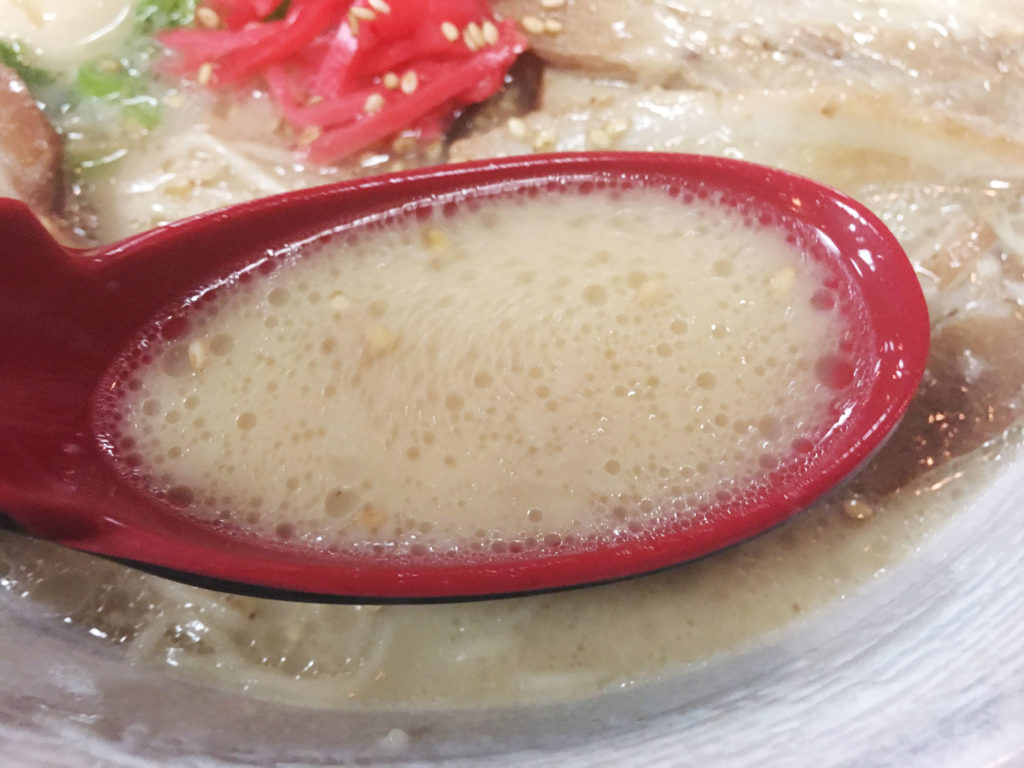 Many of the tonkotsu broths I’ve had in San Francisco tends to be one-dimensional and very fatty. Here it is milky and creamy, and has layers of flavor that comes from the shio tare pairing that gives the broth hints of sweetness and then a nice salty finish that perfectly complements the bold pork taste of the broth.
Many of the tonkotsu broths I’ve had in San Francisco tends to be one-dimensional and very fatty. Here it is milky and creamy, and has layers of flavor that comes from the shio tare pairing that gives the broth hints of sweetness and then a nice salty finish that perfectly complements the bold pork taste of the broth.
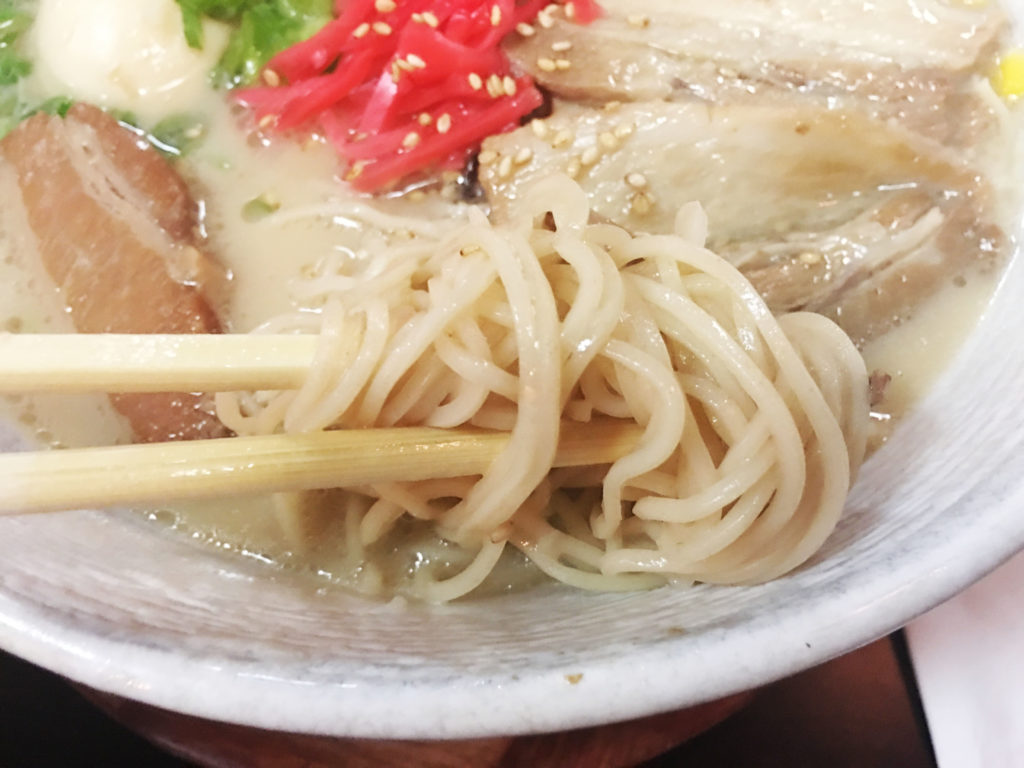 The noodles themselves were excellent. The one thing I did not like about Ippudo was that the noodles where intentionally soft to absorb the broth. Here, due to the lower water content, they are thin, yet chewy and springy. Even towards the end of my bowl, the noodles kept its al dente texture.
The noodles themselves were excellent. The one thing I did not like about Ippudo was that the noodles where intentionally soft to absorb the broth. Here, due to the lower water content, they are thin, yet chewy and springy. Even towards the end of my bowl, the noodles kept its al dente texture.
The char-shu was very good, with a perfect amount of fat to meat ratio and nicely flavored. It was tender and full of flavor. The kakuni, braised pork belly, was tender and nicely seasoned.
Other toppings included nori, soft-boiled egg, corn, green onions, kikurage mushrooms, and bean spouts.
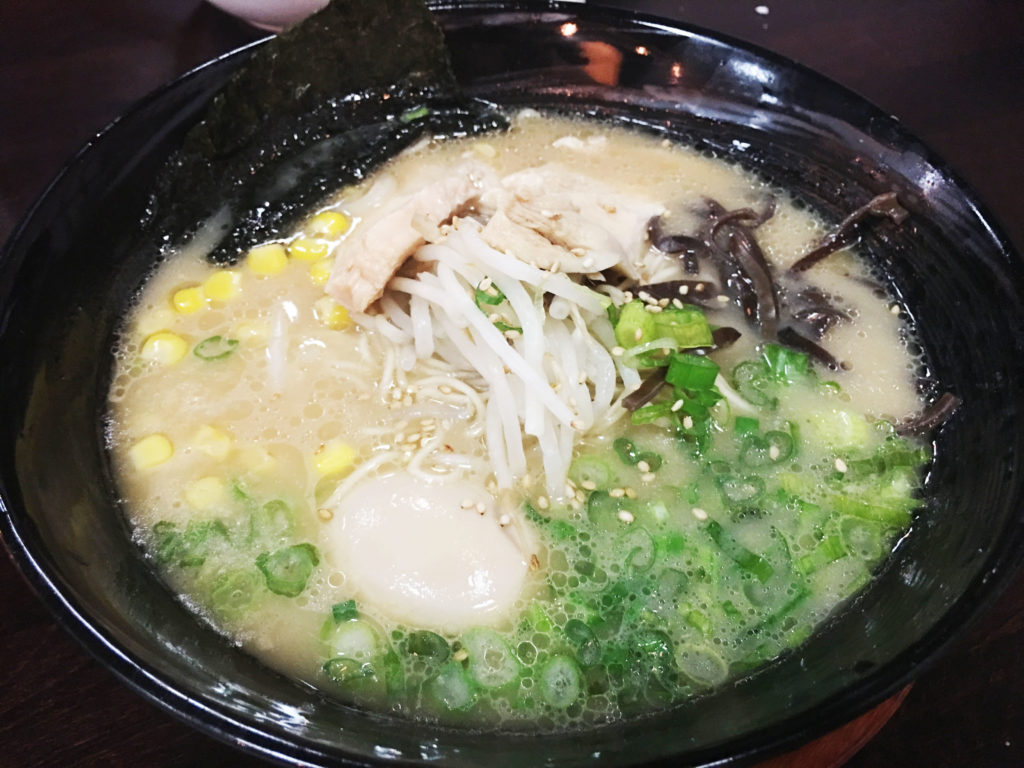 The other broth currently offered is the tori (chicken) paitan. This broth style is also served in Mensho, Hinodeya, and Nojo Ramen, that each have their own takes on the broth, but all are very good. I’m happy to say that Marufuku’s version is also very good that stands on its own against these heavy-weights.
The other broth currently offered is the tori (chicken) paitan. This broth style is also served in Mensho, Hinodeya, and Nojo Ramen, that each have their own takes on the broth, but all are very good. I’m happy to say that Marufuku’s version is also very good that stands on its own against these heavy-weights.
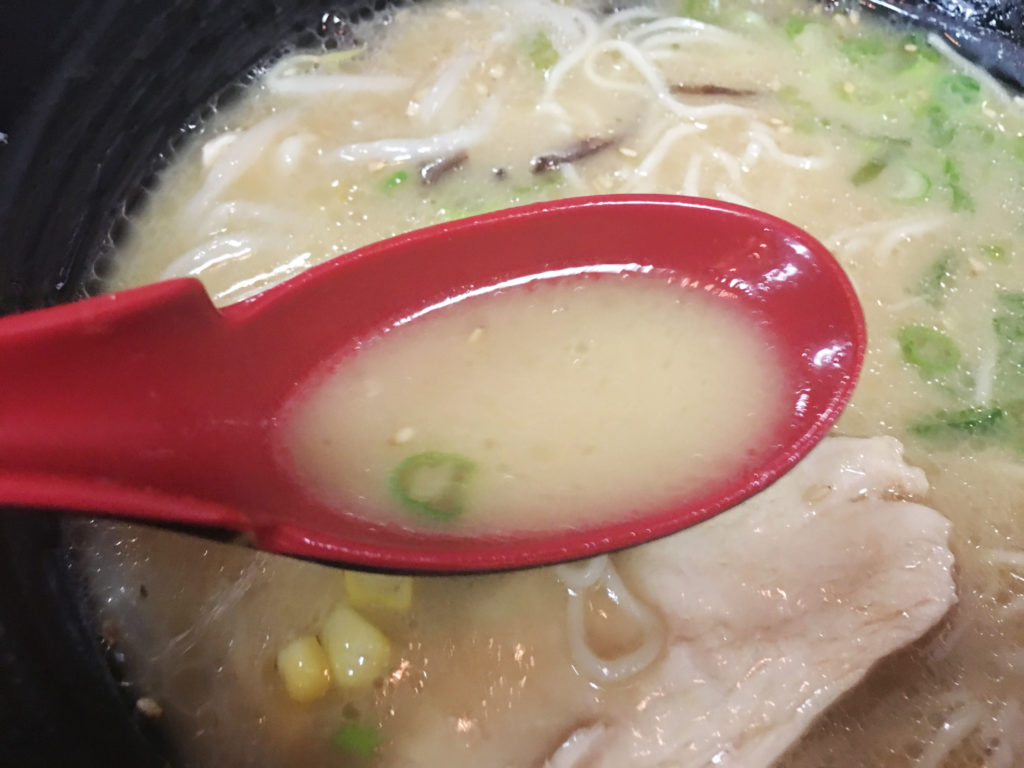 Tori paitin is another kotteri (rich) broth, but uses only chicken bones, like chicken feet and chicken wings to provide the creamy and rich consistency of the broth. I am a huge fan and happy to see the popularity of this style increase. The broth is lighter than the tonkotsu, but just as satisfying and creamy. It has less of the funk taste that pork has so it’s cleaner and usually is cooked for 6-8 hours as opposed to longer for the pork version.
Tori paitin is another kotteri (rich) broth, but uses only chicken bones, like chicken feet and chicken wings to provide the creamy and rich consistency of the broth. I am a huge fan and happy to see the popularity of this style increase. The broth is lighter than the tonkotsu, but just as satisfying and creamy. It has less of the funk taste that pork has so it’s cleaner and usually is cooked for 6-8 hours as opposed to longer for the pork version.
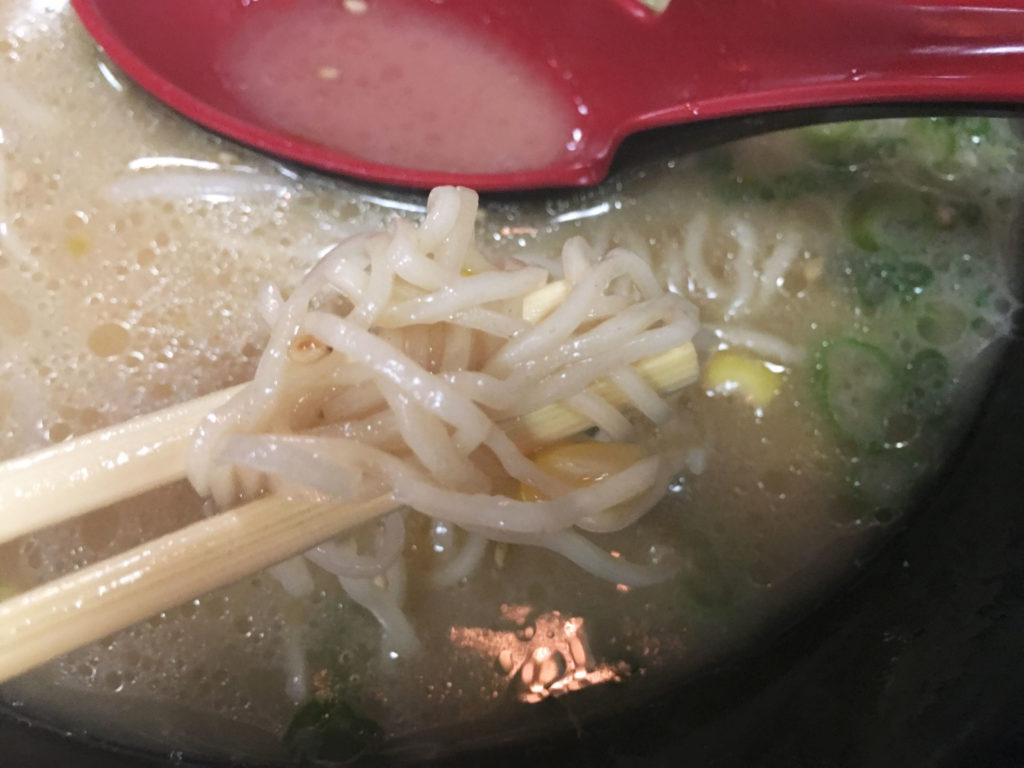 The noodles are similar to the ones from the tonkotsu. The toppings include the two sliced breast meat of the chicken that is perhaps sous vide as it’s soft, moist, and tender. It came with toppings of nori, whole soft-boiled egg, kikurage mushroom, and bean sprouts.
The noodles are similar to the ones from the tonkotsu. The toppings include the two sliced breast meat of the chicken that is perhaps sous vide as it’s soft, moist, and tender. It came with toppings of nori, whole soft-boiled egg, kikurage mushroom, and bean sprouts.
Hopefully they work through their kinks in the appetizers, but their ramen more than made up for it. I would rank Marufuku Ramen easily in my top 5 for San Francisco.
